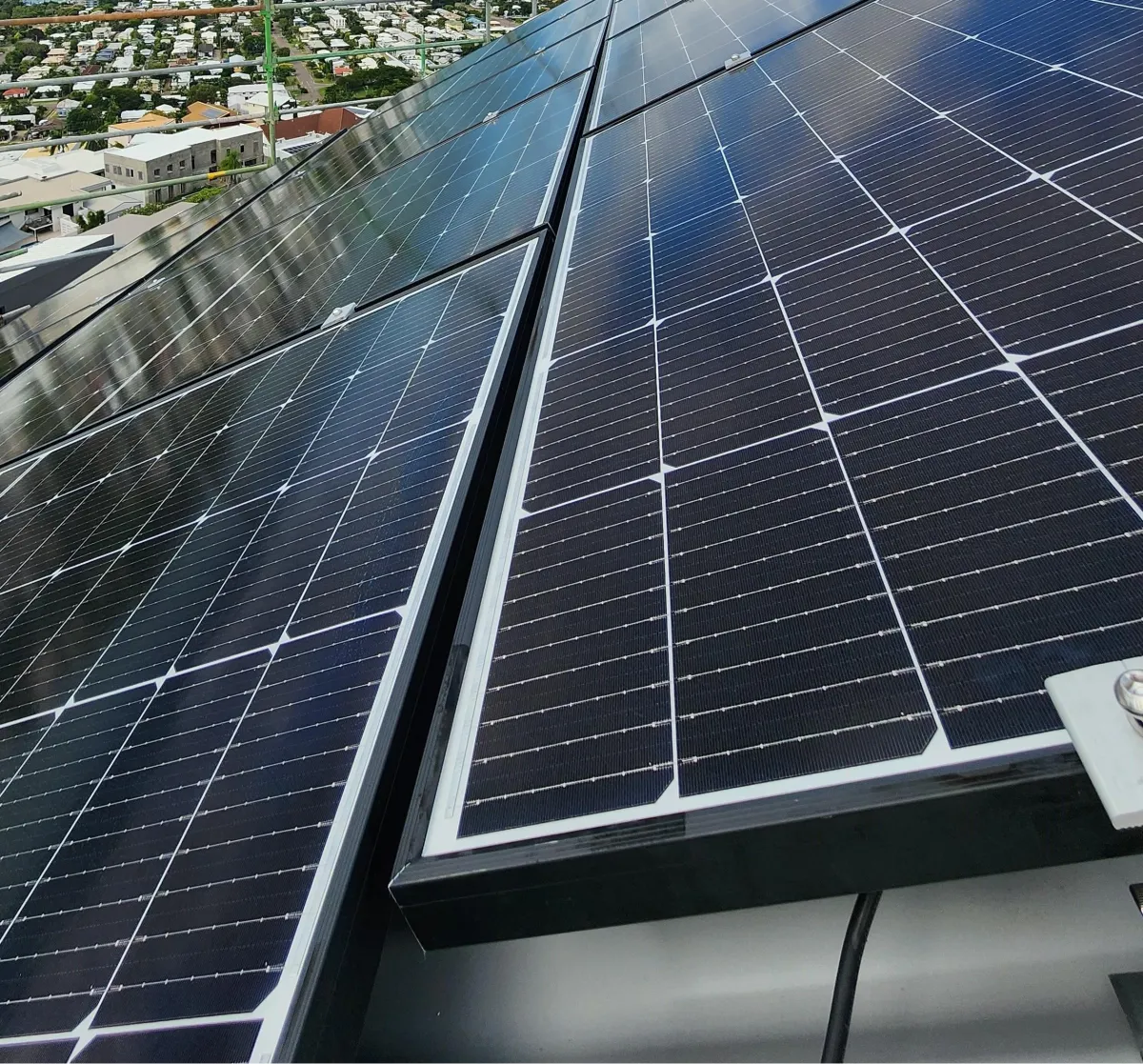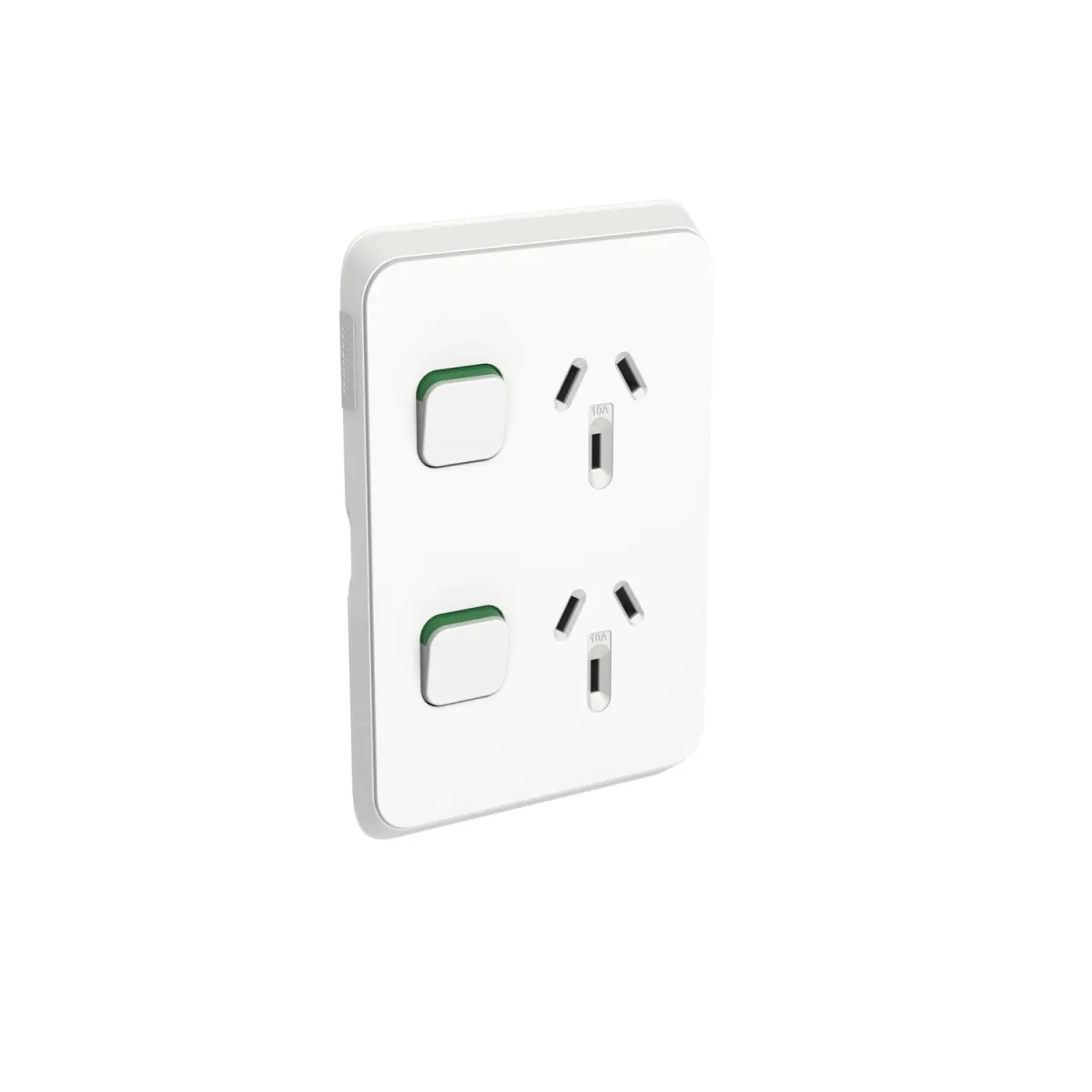Solar. Electrical. Safety. Sorted.

Frequently Asked Questions
Got questions? We’ve got straight answers—no jargon, no fluff.
Do you know what to do in an Electrical Emergency?
Be Proactive, Not Reactive
Electrical emergencies don’t send invites—they just happen. Having the right fire extinguishers, surge protectors, and safety switches can be lifesaving. They can help prevent electrical fires, short circuits, and shocks by cutting off power during an emergency.
Regular electrical inspections are crucial for identifying potential hazards before they escalate into emergencies.
Knowing how to act quickly and safely in electrical emergencies can prevent injuries and save lives.
Make sure you are familiar with these precautions and educate others on how to stay safe.
If Someone is Electrocuted
Electrocution: Act Fast, Act Smart
Do not touch them: If the person is still in contact with the source of electricity, you risk becoming part of the circuit, leading to electrocution. The human body is conductive, so touching a victim could result in electrical shock.
Kill the power: Shutting off the power at the switchboard (if safe) is the most effective way to stop the flow of electricity and reduce the risk of further harm. However, it’s crucial to ensure that it’s safe to approach the switchboard, as live wires could still be present.
Use an insulating object: Wood and rubber are good insulators, but they should not be used unless they're clean and free from moisture, as wet materials can conduct electricity. Insulating objects allow you to safely distance yourself from the electricity.
CPR only if trained: If the person isn’t breathing, CPR may be necessary, but only if you are trained. Untrained attempts at CPR can potentially do more harm than good, especially if done improperly.
If there is an Electrical Fire
Electrical Fire: No Water, No Panic
Shut it down: Cutting off the power is crucial because it halts the electricity flow, which may fuel the fire. However, only do so if it is safe to reach the switchboard or main power source. If the fire is already too intense, focus on evacuating the area.
Never use water: Water is a conductor of electricity. Using it on an electrical fire can result in a deadly shock or cause the fire to spread, making it far worse. Always keep water away from any electrical hazard.
Use the right extinguisher: Class E dry powder extinguishers are designed for electrical fires and work by smothering the fire without causing further risk of shock. Fire blankets are also effective for covering small fires. Using an incorrect extinguisher (like water or foam) can worsen the situation.
Evacuate if needed: If the fire is beyond control or spreading quickly, evacuating the premises is the safest option. Always call emergency services to handle the fire with professional equipment.
Fallen Power Lines
Fallen Power Lines: Stay Clear, Stay Alive
Keep an 8-metre distance: Power lines can still be live even if they’ve fallen, making it extremely dangerous to approach them. An 8-metre distance is recommended because electricity can jump, and the area around fallen lines can be electrically charged, putting you at serious risk.
Call emergency services and the power company: They need to be notified right away so they can isolate the hazard, shut off power, and secure the area. Never assume that someone else has already done this.
If in a car, stay inside: If you are in a car and power lines have fallen on or near it, stay inside. The vehicle is insulated by its tires and provides safety from the electrical current. If you must exit, jumping clear can prevent current from traveling through the car and into your body.
Smell Electrical Burning or have sparks?
Burning Smell or Sparks? Don’t Ignore It
Switch off power at the source: A burning smell or sparks often indicate faulty wiring or overheating. Cutting the power prevents further risk, like fires or short circuits, from spreading. It’s better to be proactive rather than wait for a bigger problem.
Unplug affected devices: Unplugging devices helps stop them from being the cause of the issue. If it’s a malfunctioning appliance, continuing to use it could cause an electrical fire or further damage.
Call an electrician: Electrical issues, such as sparking or burning, are not something you should try to fix yourself. Attempting to repair electrical systems without proper expertise can result in injury or fire. A licensed electrician has the tools and knowledge to safely diagnose and repair the issue.
Energy Bills Higher Than Expected?
Higher energy bills can result from several factors. If your bill is estimated, it may be because the meter reader couldn’t access your meter or there was a disruption to data collection. For Interval meters, issues like Wi-Fi outages or power disruptions can also cause estimates. Once actual usage is recorded, your account will be updated, and the "Estimate" label will be removed. Check your bill for “This Bill is based on an Estimated Reading” to see if it applies.
Your energy habits might also contribute. Changes like using a new appliance, brighter light bulbs, or different cooking routines can increase consumption.
Air conditioners are another factor—older models use more energy, and even newer ones can become inefficient if not regularly cleaned and maintained. Dust or mold on filters and outdoor units can significantly impact performance.
Electric hot water systems can also drive up bills, especially with longer showers or frequent hot water use. Cutting shower time and switching to cold water for laundry can help reduce consumption over time.

My Solar Inverter has a low riso alarm, HELP!
Common Causes of Low Riso Errors
Moisture or Water Ingress: Water in junction boxes, inverters, or connectors can lower insulation resistance, especially after heavy rain or in humid areas.
Limited Sunlight: Low riso errors early morning or late evening due to shade or condensation are usually temporary and may resolve as the sun dries the panels.
Damaged Cabling: UV exposure, rodents, or wear can damage DC cables, causing leakage.
Contaminated Panels: Dirt or debris on panels or connections can reduce insulation over time.
Aged Components: Over time, insulation materials degrade, causing a drop in Riso.
Preventing Low Riso Errors
Regular Maintenance: Regularly have a maintenance by Bonato Electrical to check and maintain components to catch early signs of insulation wear or damage.
Addressing Low Riso errors promptly is important for both performance and safety, as prolonged low insulation resistance can lead to ground faults or system failures
My Solar Production has changed/reduced.
Solar production naturally varies throughout the year. It tends to be highest in summer and lowest in winter due to shorter days and the sun being lower in the sky. Several factors can also impact your system’s performance.Shading on your solar panels can significantly reduce output. Ensure your panels are in full sun from 8 am to 4 pm, as any obstruction during these hours will limit efficiency.
Dirty panels can also block sunlight from reaching the cells, leading to poor performance. Cleaning your panels can help, and we offer professional cleaning services if required. Check your solar inverter to ensure it’s functioning correctly.
On sunny days, a solid green light on the inverter indicates it is working as it should. If you use online monitoring, review the power curve on a sunny day—it should be unbroken, with no fault or error messages.
During the wet season, solar generation may decrease due to heavy cloud cover or persistent rain. Water sitting on the panels can also reduce efficiency, especially in cooler weather when it takes longer to dry.
It's important to remember that solar panels degrade over time, typically losing about 1% of their capacity each year. If your system is a decade old, you might see up to a 10% reduction in efficiency.
If you’re concerned about your system’s performance, contact our team today for a comprehensive solar inspection and panel cleaning.
My Light/AC/Powerpoint Keeps Tripping – Why?
Circuit breakers trip for various reasons, and understanding the cause can help resolve the issue while ensuring safety.
Overloaded Circuit: Too many high-wattage devices on the same circuit can overload it and cause tripping. To fix this, plug devices into separate circuits or upgrade the circuit capacity.
Short Circuit: A short circuit occurs when a live wire touches a neutral or ground wire, causing a surge. This often points to damaged wiring or faulty connections. If this happens, unplug appliances, check for visible damage, and call an electrician for repairs.
Ground Fault: If a live wire touches a grounded surface, such as metal or water pipes, it can trip the breaker. This is particularly dangerous in wet areas. Turn off the circuit immediately and call an electrician.
Arc Fault: Loose or corroded wiring can create arcs, generating heat and tripping the breaker. An electrician can inspect and repair any faulty connections.
Faulty Appliances: Malfunctioning appliances can cause irregularities that trip the circuit. Unplug the appliance and check the circuit with other devices. If the appliance is the issue, repair or replace it.
Wiring Issues: Outdated or damaged wiring, particularly in older homes, can cause frequent trips. If wiring is the problem, have an electrician assess and update it to meet current standards.
Breaker Issues: If a breaker trips too easily or fails to reset, it may need replacing. A licensed electrician can replace faulty breakers and assess your panel.
Each issue can vary in severity, so it’s important to address the problem promptly to maintain electrical safety
Do my solar panels use heat to make power?
Solar panel power output decreases as the temperature of the cells rises. The rated power is measured at 25°C, but on a hot Australian summer day, panels can reach up to 75°C.
For lower-quality panels, efficiency can drop by over 0.5% for every 1°C above 25°C, meaning a 25% drop in efficiency on a hot day.
To prevent overheating, it's crucial to ensure good ventilation around your panels. Panels should be installed with enough space for airflow, especially underneath, to allow the wind to cool them. Some installers use low-profile aluminium extrusions that limit ventilation, reducing the panel's ability to dissipate heat.

Can Solar Panels Withstand Hail?
Yes, quality solar panels are built with tempered glass, similar to car windscreens, to handle typical hail and weight from snow (though not a concern in North Queensland!). Tempered glass shatters into small, blunt pieces if damaged, making it safer than regular glass.
However, extreme storms with very large hailstones can cause damage beyond what solar panels are designed to withstand. In such rare events, other parts of your home, like windows and the roof, may also be at risk.
To protect your solar system, inform your home insurance provider to ensure coverage for extreme weather-related damage

Is rainfall enough to clean my solar panels?
Rain can help rinse off some dust and light debris from solar panels, but it’s usually not enough to keep them completely clean, especially if your panels are located in areas with a lot of dust, pollen, bird droppings, or pollution.
Rain can wash away loose dirt and dust, especially during heavy rain. This can help maintain some level of efficiency, especially if your panels are at an angle that allows water to flow across the entire surface.
However, rainwater often leaves mineral deposits (hard water spots) as it evaporates, and it may not remove more stubborn buildup, like bird droppings or sticky pollen.
In most cases, periodic manual cleaning is recommended, especially in high-dust or high-pollen seasons.
Use a soft brush or cloth with deionized water (to avoid mineral deposits) for best results, or consult a professional solar cleaner to avoid scratching or damaging the panels.

Can I get a rebate or grant for my Solar?
Yes, the Australian government offers Small-Scale Technology Certificates (STCs) to reduce upfront solar costs. STCs are available for systems installed by accredited installers with approved panels and inverters. The number of STCs depends on the system size, with larger systems earning more STCs.
The deeming period for STCs decreases each year until 2030. For example, in 2023, the deeming period is 8 years, dropping to 7 years in 2024. You can also receive rebates for system replacements, not just new installs.
Bonato Electrical simplifies the process by offering the STC incentive as a discount at the point of sale. Just sign the paperwork, and we’ll take care of the rest!
Queensland’s Solar Feed-In Tariff (FiT)In Queensland, solar feed-in tariffs are managed by individual retailers, like Ergon Energy, offering up to 12 cents per kWh for surplus power sent back to the grid. To maximize savings, use your solar power during daylight hours (9 am to 3 pm) to reduce grid reliance and power your home for free.
For more on solar incentives or battery storage options, contact Bonato Electrical—we’ll help you make the most of your solar investment!

What do I need to do to get a quote to Install or Replace Solar?
At Bonato Electrical, we like to give you as much information as possible and cover all areas of your solar and electrical requirements for an Install.
To be able to accurately quote you for solar, we generally like to come to site and do a quick inspection on the home, roof and switchboards. If this is not possible, we can still provide a quote for you, we will just ask for:
Address of where the solar is to be installed
Copy of your 2-3 most recent energy bills
Photo of you meter box (where you Ergon meter is located), with the meter being clearly readable
Photo of any Switchboards or subboards (if separate to where the meter is)
Pictures of Point of Attachment (POA), if you have one. This is where the Power line comes in and connects to the front fascia of your home if you have overhead power.
Do you have single phase, 2 phase or 3 phase power? Generally only asked if you have an old switchboard where we cant see the phases of power easily.
Can you tell us where your switchboard and meterbox/s are located. I.e. front of house, rear left corner etc.
Photo of a section of the roof (if possible) - This is important to see if the structure of the roof can accommodate the rails for the panels adequately and in what layout, as well as seeing if the roof sheeting is in acceptable condition to be able to install solar on.
For replacements, If in QLD, are you receiving the 44cent Solar Feed in tariff
These questions are important, as when you install a new solar system, you may be required by local governing bodies to make modifications, relocations or upgrades to your power supply, switchboard or have the meter replaced with one that is solar ready.
Common Household Electrical Problems
Why are my lights flickering
Cause: Loose or faulty bulbs, overloaded circuits, or issues with wiring.
Solution: Tighten or replace bulbs, check that the circuit isn't overloaded, and call an electrician if flickering persists, as it could indicate a wiring issue.
My Powerpoint doesnt work
Cause: Often due to a tripped breaker or faulty outlet.
Solution: First, check your breaker box for a tripped switch. If none, it may be a a faulty GPO—an electrician can safely inspect and replace the outlet if needed.
Warm Outlets or Switches
Cause: Loose wiring or overloaded circuits.
Solution: Stop using the outlet immediately and use our https://lana.ink/job-be. Warm outlets can be a fire hazard and should be checked out without delay.
Buzzing Sounds from Switches or Outlets
Cause: Loose wiring or defective dimmer switches. For fans this can be a motor or controller mechanism issue, especially if the fan is not moving properly.
Solution: A buzzing sound often signals a problem with the wiring. Stop using the switch or outlet and call an electrician.
How Energy Conscious Are You?
Take our quiz to find out!
Book your Inspection Today!
Ready to keep your solar system running smoothly or tackle that electrical project? Complete our booking form today, and our expert team will get you sorted with reliable, hassle-free service!

Details Define Us
Precise and creative solutions.

Extraordinary Care
Honesty and transparency.

Exceptional Standards
Top-notch products and services.

FOLLOW US
COMPANY
CUSTOMER CARE
QUICK LINKS
Copyright 2026. Bonato Electrical & Solar. ABN: 39 648 590 032. All Rights Reserved.



